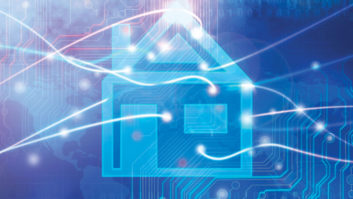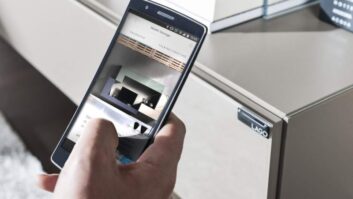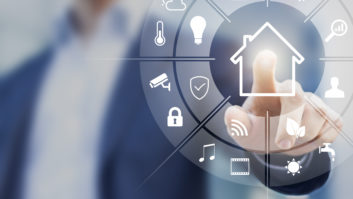
By Oren Kotlicki, CEO and Founder, Intellithings
Today’s smart homes continue to get smarter, more sophisticated, and simpler to use. For example, individualized smart lock codes, encoded key fobs, and geofencing technologies allow smart homes to know when a specific person has arrived home, and advancements in voice control have enabled homeowners to access and command their smart home devices with just the sound of their voice.
However, these devices cannot identify which specific person is in which specific room within your home until you engage via voice, app, or other tangible touchpoint. The future of the home will cut out this extra step, enabling your smart home network to intelligently identify where exactly you are in your home and how you want your smart home devices to react.
There are already many efforts underway to deliver more personalized smart home automations for the home, but many of these require using the cloud, which, although useful in many smart home applications, has also opened the door for rampant data security risks. To give homeowners the highly customizable home automations they seek without compromising their data, identity, or security, the future of the home must find a way to deliver smart home personalization without relying on internet connectivity, using biometrics, or collecting data.
The Future of Smart Home
I can see no other future for the smart home than one in which users enjoy increasing amounts of flexibility, comfort, and customization. At the end of the day, the IoT is all about human-technology interactions, and as our tech advances, users will, rightly, expect devices that can recognize their precise location, adapt to their unique desires (even as they may change over time), and simultaneously suit the routines of a multi-person household.
In other words, the future of the home must contain a smart home network that is context aware. So far, our smart home networks have been able to understand context only through active participation (e.g., voicing a command, pressing a button, or using an app). But for an increasingly sophisticated world of IoT, this kind of tactile, laborious interaction is simply not good enough, as the true “home of the future” that so many users envision is one that is intelligent and able to understand and adapt to our needs without our input.
RoomMe
The future of the home will be increasingly reliant on smart sensors, with a new breed joining and fronting the pack: Personal Location Sensors (PLS). Intellithings has been the first to develop this new kind of smart sensor with RoomMe, the smart home PLS that leverages patented presence sensing technology to make room-to-room, person-specific smart home automations a reality.
RoomMe is not a replacement for a smart home system; rather, it’s an additional layer that exists over user’s already-installed smart home networks. Using the unique Bluetooth signatures of people’s smartphones, RoomMe is able to identify which specific person is in which room of the home. This is a completely new layer of intelligence that is lacking in today’s smart home devices: the ability to sense who is and isn’t in each room to trigger personalized smart home scenes for lighting, music, comfort, and lifestyle simplicity.
And, because RoomMe doesn’t use the cloud, internet connectivity, or biometrics, it can deliver the highly customized smart home scenes that users seek without compromising their data security.
In 2020 and beyond the industry will experience growth in the smart home sensor sector as systems begin to take the burgeoning amount of data they provide and work to create contextually aware smart home systems.
About Oren
Oren Kotlicki is founder and CEO of Intellithings Ltd., developers of technology solutions that empower connected smart home devices to deliver personalized automations. Kotlicki is an expert in smart home devices, safety systems, detectors, and burglary, with over 20 years of experience working with wireless technology in product management and business development.
About Intellithings
Intellithings develops technology solutions that advance connected products and services through personalized automations. Intellithings’ patented presence sensing technology combines deployed Personal Location Sensors (PLSs) with a mobile smartphone app to identify a person’s location at the room-level by using the unique signatures of persons’ smartphone as an authenticator. Intellithings’ technology is available directly to consumers as RoomMe to make the concept of personalized smart home automations a reality for residential homes and apartments. Intellithings’ technology is also available as an OEM solution to device manufacturers and service providers.













